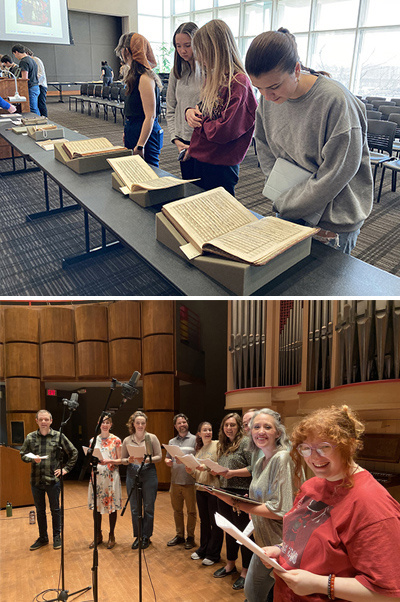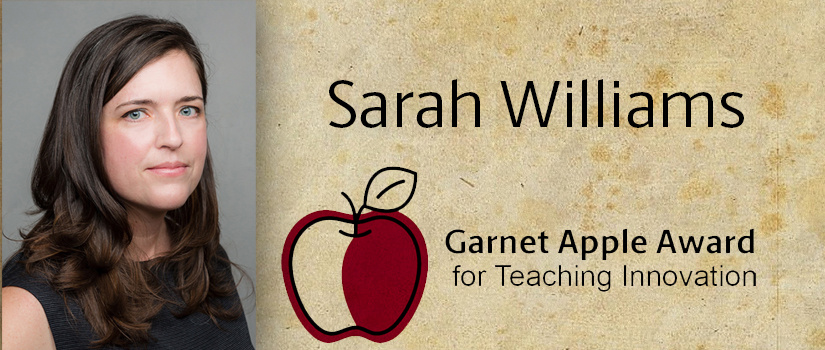University of South Carolina School of Music History Professor Sarah Williams was recently awarded the 2024 Garnet Apple Award for Teaching Innovation. This prestigious accolade recognizes outstanding faculty members at the University of South Carolina dedicated to implementing best teaching practices. The award winners are known for their innovative approaches to enhancing student learning in their courses. Williams impressed the committee members with her ability in using universal design for learning and experiential learning techniques in her classes.
Like many School of Music professors, Williams understands the benefits of engaging students in community projects and exposing them to experiences beyond the classroom. She often partners with local museums and libraries to offer opportunities for students to become active and engaged members of the local community.
 Funded by a Center for Integrative and Experiential Learning Unit Grant, Williams
and her students built a digital humanities project, Singing the Archives, in collaboration with university libraries during the spring and fall 2023 semesters.
Undergraduate and graduate students recorded historically informed performances of
plainchant manuscripts in the collection dating from the 13th through the 16th centuries.
Funded by a Center for Integrative and Experiential Learning Unit Grant, Williams
and her students built a digital humanities project, Singing the Archives, in collaboration with university libraries during the spring and fall 2023 semesters.
Undergraduate and graduate students recorded historically informed performances of
plainchant manuscripts in the collection dating from the 13th through the 16th centuries.
During this project, Williams recognized the importance of learning alongside her students. She says many theories of collaborative pedagogy center on peer-to-peer learning. To achieve this, Williams created parameters and goals and allowed the group to decide on a path toward those goals.
“We were equal partners in this project. I took their ideas seriously, created shared
online workspaces with transparency, and performed small but effective actions like
refusing to stand at the ‘head’ of the classroom during methods days,” said Williams.
Students visited the Irvin Department of Rare Books and Special Collections to choose
medieval manuscripts, studied Gregorian chant notation, and took part in group and
collaborative work to organize and plan the project. The project culminated in professional
recording sessions and an open-access digital exhibit through Digital Collections.
She believes that undertaking projects like this helps students to become true "learners" rather than just “attenders,” and understands engagement looks different for every student.
“I ask my students to ‘show up’ — literally and metaphorically — to contribute to a classroom community and to engage with me, their classmates, and the material,” said Williams. “I try to decouple learning and engagement from judging; I define attendance as a behavior not a learning outcome.”
My teaching methodology is centered on not only guiding students through music of the past, but encouraging them to reconstruct the mindset of the culture that produced this music.
— Sarah Williams, music history professor
Williams is not only a teaching professor, but also rotates with other Music History faculty as area coordinator. In this role, she has implemented several initiatives to enhance the quality of undergraduate music history teaching at the School of Music. These initiatives involve recruiting faculty members with diverse and innovative research interests, as well as creating and managing the Luise E. Peake Music & Culture Colloquium brand. The Peake Colloquium is a public event series that offers a wide range of programming and guests, with a focus on emerging scholars and artists.
Williams expressed gratitude for receiving the award.
“It is a privilege to learn from my students and adapt my pedagogical approaches to the changing world in which they live," she said. "I share this award with them."
